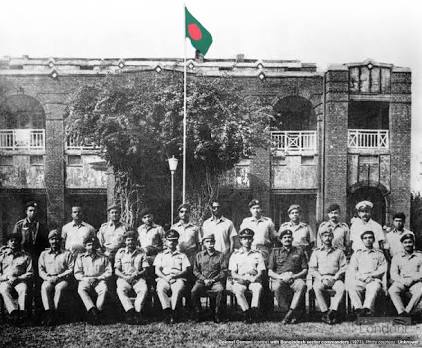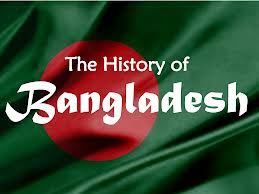Bangladesh : History
History
From its earliest pre-history Bangladesh has been subject to waves of migration and the incursions of regional – and later European – powers. An Indo-Aryan population, Hindu in belief, arrived between 3,000 and 4,000 years ago and the evidence suggests a flourishing, sophisticated civilisation.
The Moghul dynasty, conquering the territory in the 16th century, spread Islam widely through the country. The following successions of arrivals were the Portuguese, Armenians, French and British, who established military and trade outposts. In 1757 a British force defeated the local army of Nawab Siraj-ud-Dwola and set in train 190 years of British rule.
In 1947 East Bengal and Sylhet (then part of Assam) came to independence out of the UK’s Indian Empire, as the eastern part of the Muslim state of Pakistan. From the start, East Pakistan was beset by problems. In particular, it resented the dominance of its richer and more powerful though less populous partner, West Pakistan, from which it was geographically separated by about 1,600km of Indian territory. Political control, language and economic policy were among the large areas of disagreement. In 1949 the Awami League was established in East Pakistan to campaign for autonomy. Protests and violent demonstrations followed the declaration, in 1952, that Urdu was to be Pakistan’s official language. Bengali was finally accepted as the joint official language two years later.
.jpeg)
source
By the mid-1960s, continued under-representation in the government administration and armed forces and a much less than fair share of Pakistan’s development expenditure gave rise to the belief by many in East Pakistan that the only remedy was greater autonomy and thus more control over its own resources and development priorities and politics. In 1970, Sheikh Mujibur Rahman, leader of the Awami League, won an electoral majority in Pakistan’s general election on a platform demanding greater autonomy for East Pakistan. At the same time Zulfikar Ali Bhutto gained a majority in the West. Despite Mujib’s victory, he was prevented by the Pakistan authorities from becoming prime minister of the combined state.
The Awami League then issued its own plans for a new constitution for an independent state, as a result of which the Pakistani army took control and Mujib was arrested in March 1971 after a fierce crackdown. This precipitated civil war, with an estimated 9.5 million refugees fleeing to India as a result, and led to military intervention by India on the side of theMukti Bahini (Bengali ‘freedom fighters’) at the beginning of December. Two weeks later, Pakistan forces surrendered and the separate state of Bangladesh emerged. Sheikh Mujib returned from captivity in Pakistan in January 1972 and became prime minister. Instability in the new state was compounded by floods, famine, the assassination of Sheikh Mujib in August 1975 – shortly after he became president – and a succession of military coups, with martial law and frequent states of emergency. After a coup in 1975, Major-General Ziaur Rahman (Zia) assumed the leadership and in 1978 he became president. The 1979 general election brought his Bangladesh Nationalist Party (BNP) to government. The country then enjoyed a period of economic and political stability. But in 1981 President Zia was murdered in an attempted coup.
In 1982 the then army chief, Lt-General Hossain Ershad, assumed power after another coup and became president in 1983. In May 1986 elections were held in violent conditions and boycotted by the BNP under Zia’s widow, Begum Khaleda Zia. Ershad’s Jatiya Party (JP) won and the Awami League, led by Sheikh Hasina, the daughter of Sheikh Mujib, boycotted parliament. Ershad won presidential elections in October 1986, and he lifted martial law and reinstated the constitution. The following year was marked by riots and strikes, a state of emergency, thousands of arrests, and house-arrest for Begum Zia and Sheikh Hasina. A general election of March 1988, boycotted by the opposition, returned the JP with 238 seats, and the state of emergency was lifted. Then ensued devastating floods covering up to 75% of the country and making tens of millions homeless.
In December 1990, following mass demonstrations, President Hossain Ershad resigned and was put under house arrest. During 1991 he was convicted of illegal possession of firearms and other offences and sentenced to 20 years’ imprisonment. In the February 1991 elections the BNP won 138 of the 300 directly elective seats and Begum Khaleda Zia was confirmed as the country’s first woman prime minister. The main opposition was the Awami League and its allies, with 95 seats. A national referendum then endorsed a return to parliamentary democracy with a non-executive president. In 1991 a cyclone devastated the south-east coast, killing an estimated 250,000 people.
.jpeg)
source
Political tensions mounted and opposition demands for a fresh general election increased from late 1993 into 1994, culminating in the resignation of all the opposition members from the Jatiya Sangsad in December. In 1995, following further strikes and violent protests staged by the opposition, the Jatiya Sangsad was dissolved at the request of the prime minister, pending the holding of a general election in 1996. The Awami League, Jatiya Party and Jamaat-e-Islami boycotted the poll and the BNP took the majority of votes cast. The opposition parties renewed their campaign and paralysed the country causing severe damage to the economy. In March 1996, the government agreed to the appointment of a neutral caretaker government to oversee the holding of fresh elections. Begum Zia resigned and the Jatiya Sangsad was dissolved.
In the parliamentary elections that followed in June 1996, the Awami League won 146 seats, the BNP 116, Jatiya Party 32 and Jamaat-e-Islami three. An informal alliance with the Jatiya Party allowed the Awami League to gain control of the majority of seats in parliament and Sheikh Hasina became prime minister, with Begum Zia’s BNP now the main opposition which soon began a new campaign of strikes and street protests and a series of long parliamentary boycotts. In 1997 Ershad was released from prison and in March 1998 the Jatiya Party left the ruling coalition. The Awami League, which as a result of a number of by-elections now had an absolute majority, continued on its own. In 1998 the country was again devastated by floods which covered nearly two-thirds of the land area.
.jpeg)
Hi! I am a robot. I just upvoted you! I found similar content that readers might be interested in:
http://thecommonwealth.org/our-member-countries/bangladesh/history